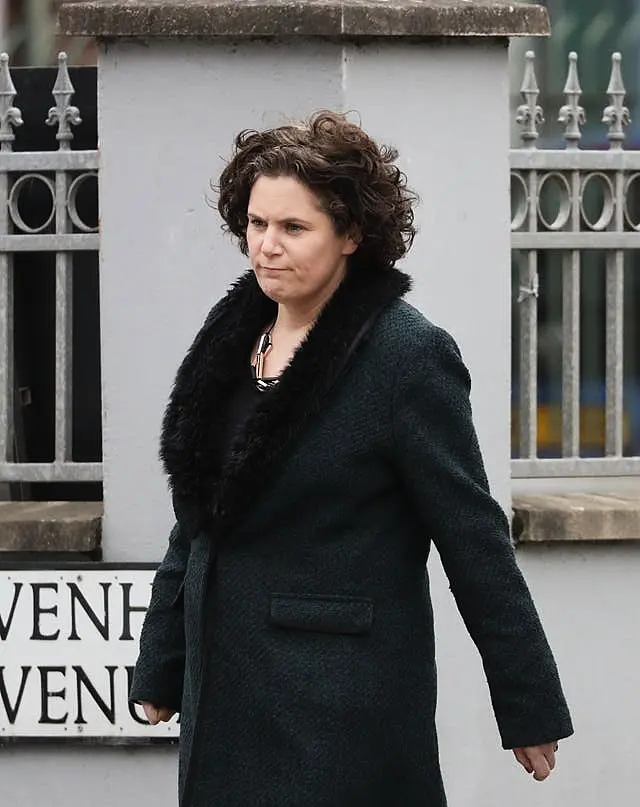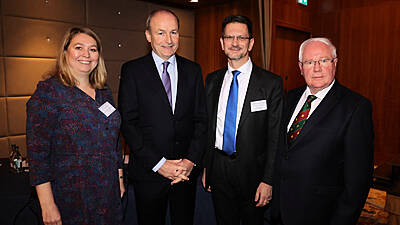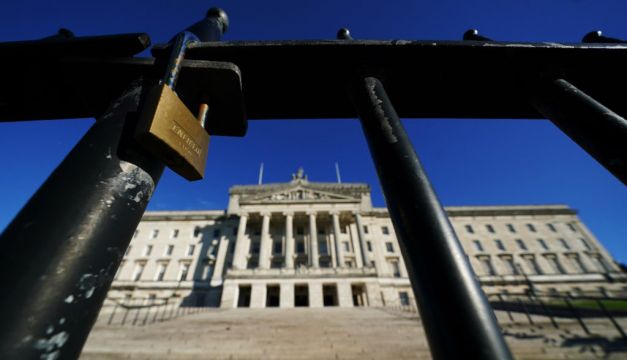An announcement that there will be no fresh Stormont election in December has been described as “classic Tory chaos”.
After days of speculation following the collapse of the Assembly, Northern Ireland Secretary Chris Heaton-Harris said there will not be an election in December.
He said he will outline his next steps in the UK parliament next week.
The people of Northern Ireland deserve a strong devolved government. I have had valuable conversations with Party leaders and people across Northern Ireland over the past week and have listened to their concerns about the impact and cost of an election at this time. (1/2)
— Chris Heaton-Harris MP (@chhcalling) November 4, 2022
Advertisement
Mr Heaton-Harris is obliged to call an election within 12 weeks of October 28th when the deadline for the Northern Ireland parties to form a fresh executive ran out.
A DUP boycott of the devolved institutions, in protest at post-Brexit trade arrangements under Northern Ireland Protocol, has prevented an administration being formed in the wake of the outcome of the last election in May which saw Sinn Féin emerge as the largest party at Stormont for the first time.
While a December election has been ruled out, it is understood that a poll in January is regarded as posing major logistical challenges.
Sinn Féin MLA John O’Dowd said a decision over a fresh Stormont election should have been taken a week ago.
He described a “classic example of Tory chaos being imposed upon the people”.
“Now we have no executive, no election, no budget, no ministers, and people facing a deepening economic crisis, particularly in light of yesterday’s announcement from the Bank of England that interest rates are going to rise,” he told BBC Radio Ulster.
He also blasted Mr Heaton-Harris as “part of the political difficulties”.
“He [Chris Heaton-Harris] has made Liz Truss look competent and I thought that was impossible. The guy has caused major problems here, he has shown his inability to lead, to show a willingness to work with the political parties here or to show any sort of respect for the people we’re supposed to represent,” he added.
Mr O’Dowd also blasted the DUP, saying it is “no longer acceptable for them to boycott government”.
DUP leader Jeffrey Donaldson has called for a “razor-sharp focus on getting a solution, whether by negotiation or legislation” to the protocol.
“There is no solid basis for a fully functioning Stormont until NIP is replaced with arrangements that unionists can support. Progress in NI only made when unionists and nationalists are aboard,” he tweeted.
Mr Heaton-Harris has also been criticised by former Norther secretary Peter Hain who said: “Nobody thought an election would resolve anything, and why the government got itself into that position, who knows?
“It gives me no pleasure at all to say this but I don’t think the Secretary of State or the government know what they’re doing because there’s no clarity, there’s no purpose, there’s no strategy. It seems to be lurching from one problem to another.”
Earlier this week Mr Heaton-Harris met Stormont parties as well as Minister for Foreign Affairs Simon Coveney.
On Friday Mr Coveney welcomed the decision not told hold elections before Christmas.
“Fully share the Secretary of State’s objective; restoration of functioning institutions in NI,” he tweeted.
“We had a good discussion this week, including on legal obligations under NDNA [New Decade New Approach].
“No election pre Christmas is welcome and creates space for progress on other matters. We remain in contact.”
The Alliance Party, UUP and SDLP also welcomed the decision not to have an election in December.
Alliance deputy leader Stephen Farry said an election would have created deeper divisions.

He also called for “much more rapid progress in terms of the UK-EU negotiations around the protocol”.
UUP leader Doug Beattie said it “takes political courage to change your mind when you get something wrong”.
“He [Chris Heaton-Harris] got something wrong. The 28th of October was never a deadline. It was always a guideline,” he told the BBC.
He said work needs to be done to find a solution to concerns around the Northern Ireland Protocol.
“The bottom line to all of this is we need to get the executive up and running so we can start providing for the people of Northern Ireland,” he said.
SDLP MP Claire Hanna described a “big U-turn”, telling RTÉ that Mr Heaton-Harris had “hoisted himself on his own petard by being so definitive in the run-up to last week”, but added: “we’ll give him a bit of space to try and fix some of these problems because they are fixable.”
Speculation was heightened on Wednesday after Steve Baker, a junior minister in the Northern Ireland Office, insisted the date for a Northern Ireland election will be confirmed soon.
But in a statement on Friday morning, Mr Heaton-Harris said he had listened to concerns about the impact and the cost of an election at this time.
“I can now confirm that no Assembly election will take place in December, or ahead of the festive season,” he said in the statement.
“Current legislation requires me to name a date for an election to take place within 12 weeks of October 28 and next week I will make a statement in Parliament to lay out my next steps.”
He added: “My objective, what the people of Northern Ireland deserve, is the restoration of a strong, devolved government.
“My duty is to create the right environment for the parties in Northern Ireland to work together to restore the devolved institutions and deliver on crucial issues impacting Northern Ireland’s people.
“I do not take this duty lightly, nor do I overlook the very real concerns people have around their cost of living.”

While the UK government is now under a legal responsibility to call a fresh election within 12 weeks, it could amend legislation at Westminster that would either extend or remove that time limit.
The British government has vowed to secure changes to the protocol, either by a negotiated compromise with the EU or through proposed unilateral domestic legislation, the Northern Ireland Protocol Bill, which would empower ministers to scrap the arrangements without the approval of Brussels.
The European Commission has said the latter approach would breach the terms of an international treaty and potentially prompt retaliatory action.







